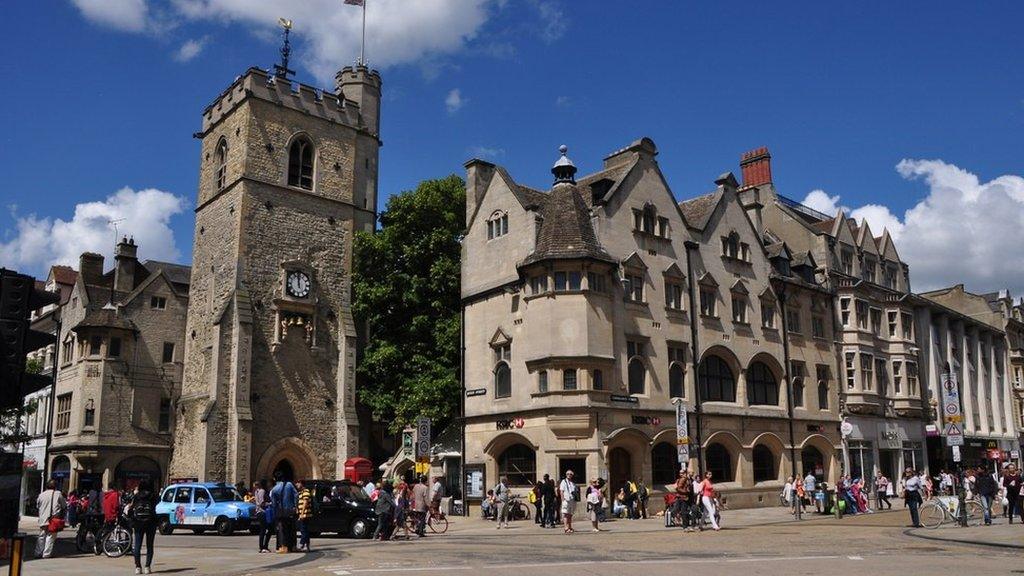Oxford zero emissions zone launched in city centre
- Published
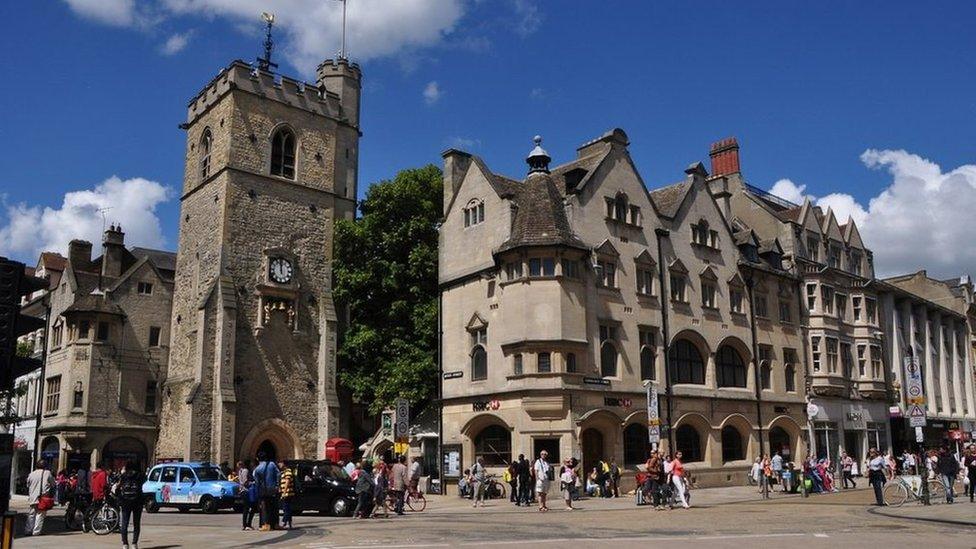
Drivers of non-zero emission vehicles using the zones in the city centre will be subject to charges
A scheme to clear Oxford city centre of polluting vehicles has got under way.
Drivers of all non-zero emission vehicles using certain roads will be charged in the Zero Emission Zone (ZEZ), which was approved last March.
The city is the first in Britain to introduce a ZEZ, Oxfordshire County Council and Oxford City Council say.
Duncan Enright, cabinet member for travel and development strategy, said it was the "latest measure to clean up the air in our historic city centre".
The pilot will apply between 07:00 and 19:00 each day, and includes Bonn Square, Queen Street, Cornmarket Street, part of Market Street, Ship Street, St Michael's Street, New Inn Hall Street, and Shoe Lane - all known as the "red zone".
A wider ZEZ covering the rest of the city centre will follow next year, subject to further public consultation.
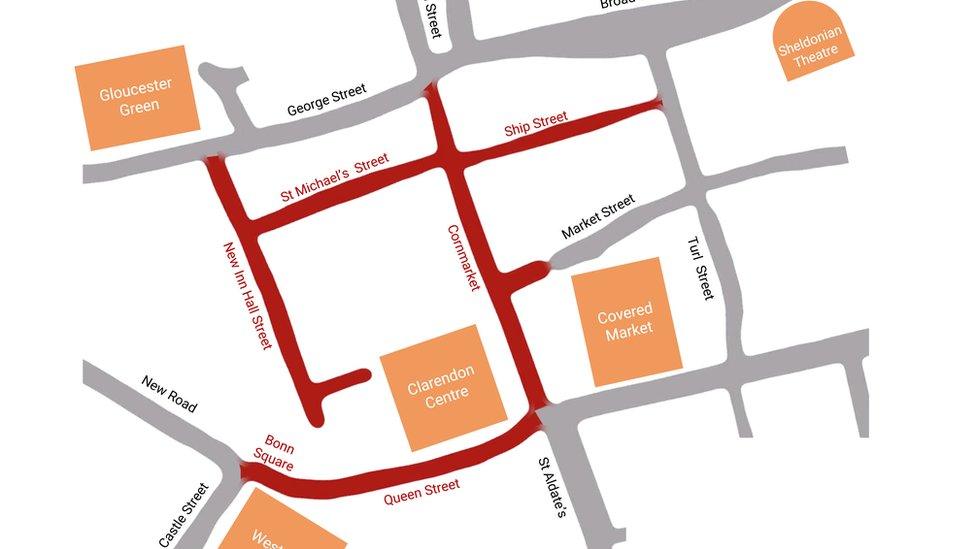
Under the plans, motorists will be charged for driving in the "red zone"
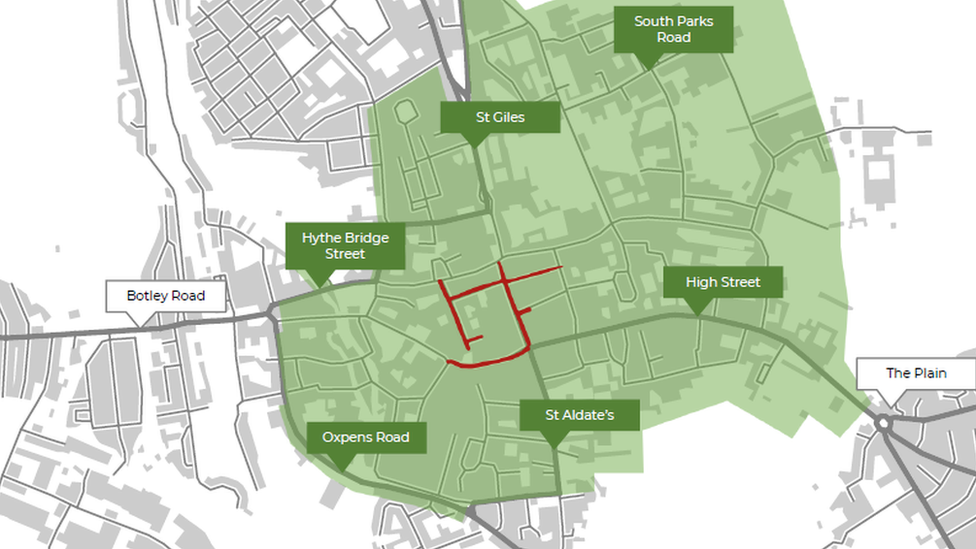
The ZEZ could later be widened to cover the rest of the city centre, the council says
Drivers of zero emission vehicles will not be charged to drive in the zone, but drivers of all petrol and diesel vehicles, including hybrids, will be charged from £2 to £10 per day, with automatic number plate recognition cameras used to enforce the new rules.
Mr Enright said councils, local businesses and residents would be able to learn from the pilot and "make the right choices, so our beloved and beautiful Oxford is a pleasure to live, work and spend time in".
Tim Dexter, campaigns manager for air quality for the charity Asthma + Lung UK, called it a "watershed moment for tackling air pollution, setting the level of ambition other local authorities should be aiming for in dealing with the UK's toxic air crisis".
He added: "More than 11,000 people living in the Oxford city area have lung diseases like asthma and chronic obstructive pulmonary disease. This new move could help prevent hospitalisation or even death from exposure to toxic air.
"That's why we welcome this bold action by Oxford City Council to tackle the most polluting private vehicles, which are a leading source of the problem."
Mr Dexter said the charity also supported plans to widen the ZEZ .
Oxfordshire County Council recently announced its plan to bring 159 electric buses to Oxford as part of its aim to have a zero-carbon bus network by 2030.

Follow BBC South on Facebook, external, Twitter, external, or Instagram, external. Send your story ideas to south.newsonline@bbc.co.uk, external.
Related topics
- Published24 February 2022
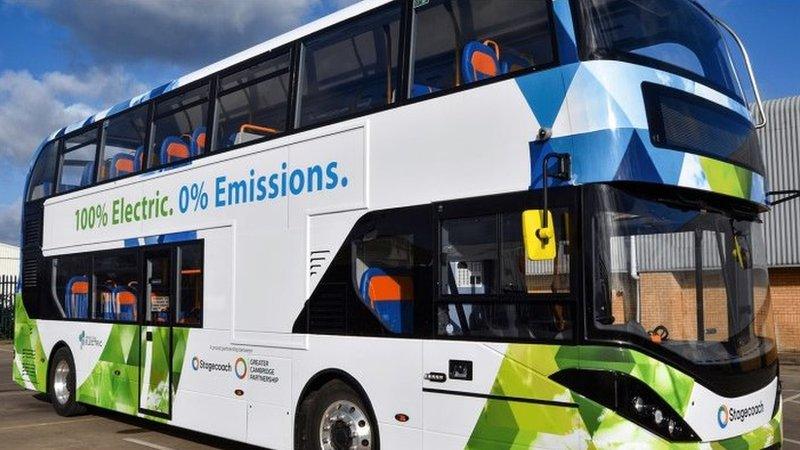
- Published28 January 2022
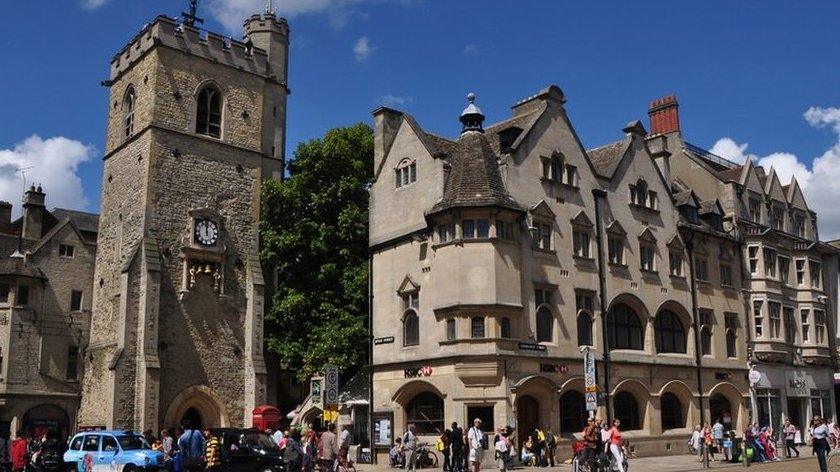
- Published26 January 2022
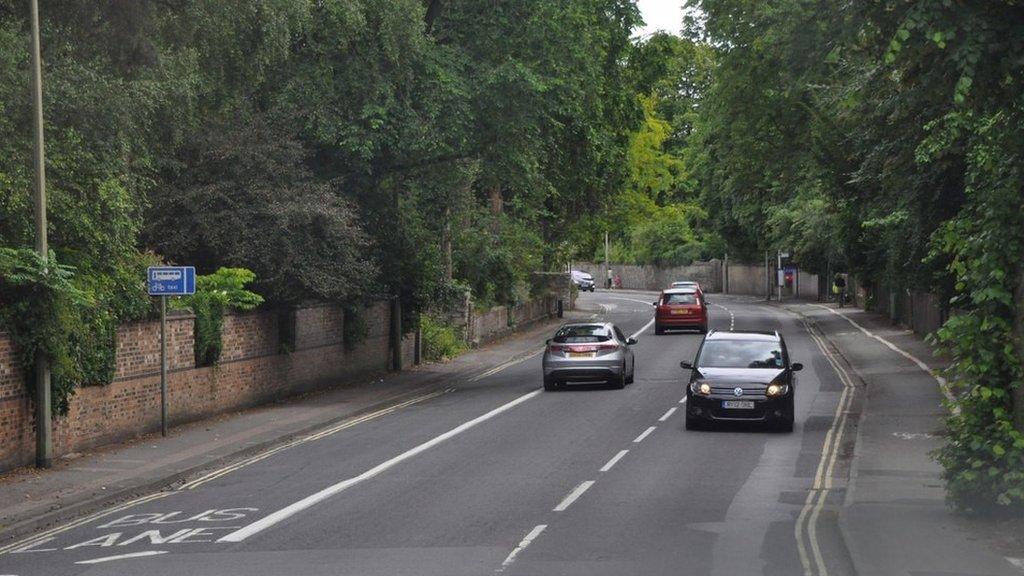
- Published9 March 2021
